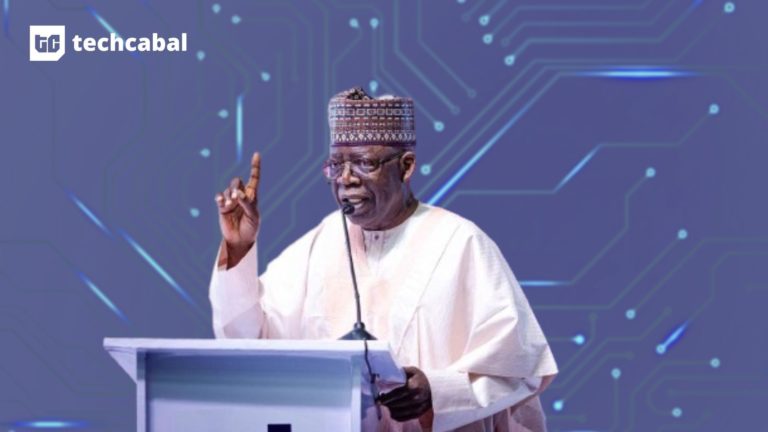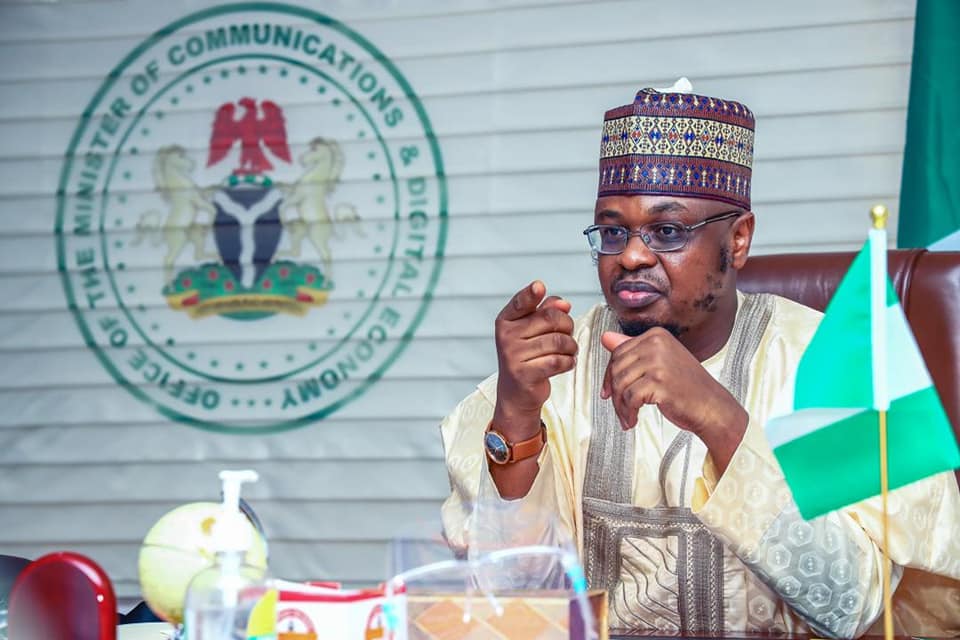The Tinubu administration has lofty dreams for the Nigerian digital economy, but it remains unclear how it will achieve them. We analyse the most pressing issues for the incoming minister of digital economy.
On May 29, 2023, barring any unforeseen circumstances, Bola Ahmed Tinubu of the All Progressives Congress (APC), will be sworn in as president of the country. As it stands, his incoming government has shown signs of working to spur the growth of the Nigerian tech ecosystem. His 80-page election campaign manifesto, which was presented at a business summit in Lagos by Iyinoluwa Aboyeji, a two-time unicorn founder and venture capitalist, devotes an entire section to the digital economy.
The section starts by establishing how important a Tinubu-led government considers technology and continues with a promise to create one million new jobs in the “ICT sector”. There is also mention of talent outsourcing to the global economy, infrastructure-led support of Nigeria’s ecommerce industry, tech manufacturing, a plan to deliver broadband services to 90% of the population by 2025, and a review of the government’s stance on blockchain technology and crypto.
While these promises sound exciting for any stakeholder in Nigeria’s tech ecosystem, in Nigeria’s democracy, the government’s promises rarely translate into action.
Should the minister employ a hands-on approach?
Actualising these promises will fall to the next minister of communications and digital economy, and they have their work cut out for them. In a conversation with Abdul-Hakeem Ajijola, a former special adviser to the Obasanjo, Yar’Adua, and Jonathan administrations on technology, I asked what he thought the incoming government could do for Nigeria’s ecosystem, especially after noticing how hands-on francophone African governments were in supporting their ecosystems (the Ivorian minister and representatives of the ministers in Togo, Benin, Congo, and the DRC were active participants at a cybersecurity conference; the Ivorian government also signed a $23 million deal in April with an Ivorian company to digitise the tourism sector). Ajijola replied that what Nigeria needs is less involvement from its government in the technology sector.
“Sometimes, but not always, the best thing that the government can do is get out of the way. Sometimes you find that the actual problem is a single point of failure, and that single point of failure is the government, a single point of institutional failure,” he said. “Right now, too often, the government is actually the stifling agent,” he added.
It is not hard to agree with him. The Nigerian government is notorious for frequently acting as a barrier rather than a bridge for the technology sector. The Lagos state government’s ban on two-wheelers, which changed the trajectory of several ride-hailing companies; the Twitter ban; and the Central Bank’s ban on cryptocurrencies which made crypto trading illegal overnight, are recent examples that come to mind.
Despite these conflicts between government and innovators, the Nigerian tech ecosystem has continued to grow in leaps and bounds. Last year, Nigerian startups raised over $1.1 billion, according to Partech, a venture capital firm. Leveraging Nigeria’s position as the largest economy in Africa, over 3,300 startups currently operate in the country, more than thrice the number in the next country.
Oswald Osaretin Guobadia, senior special assistant on digital transformation for the Buhari administration, disagrees with Ajijola. He told TechCabal that the incoming minister’s first 50 days should be focused on attaining the required approvals for a rigorous transformation agenda.
“What is currently crucial is a strategic, non-siloed collaborative execution plan. No more talks, no more announcements. It’s time to execute, so [the office] needs to be treated as a digital (dot) Nigeria programme office, with the express directive and executive empowerment to digitise Nigeria from governance to education to health to commerce. [The] digital transformation of Nigeria will require effective infrastructure buildout, combined with cross-sector policymaking,” he said.
While limited government involvement in the tech ecosystem might be the best route given the history of Nigeria’s governments, a supportive government would go a long way in further solidifying Nigeria’s stance as the leader in startups in Africa.

What needs to be done?
To achieve digital transformation and support startups, the Tinubu-led government and its digital economy minister need to work with state governments to ensure that the Nigeria Startup Act is not just federal law but is implemented in every state. A shining example of when the Nigerian government got it right with its tech ecosystem, the Nigeria Startup Act was formulated by the Buhari administration to provide a clear regulatory framework for startups and create an enabling environment for them to thrive.
However, eight months later, no state has domesticated the act, and only a few have made concrete efforts in that direction. Guobadia told TechCabal that the incoming minister can change this by “ensuring complete implementation of the act… and continuing to ensure that the entire ecosystem remains engaged in the process”.
Another pressing concern for the new minister will be addressing the controversies around the amendment of the National Information Technology Development Act. The amendment aims to create separate regulators for the telecommunications sector and the IT sector. Instead, the amendment allows the National Information Technology Development Agency (NITDA) to take over most of the powers of the Nigerian Communications Commission (NCC). The amendment also reduces regulatory independence by creating ministerial influence over the regulatory process.
The minister will also need to implement the National Digital Economic Policy and Strategy. The policy, introduced by President Muhammadu Buhari in 2019, aims to reposition the Nigerian economy to take advantage of the many opportunities that digital technology offers and diversify the economy’s reliance on oil. However, there is still a lot to be done before the expiration of the policy in 2030.
Perhaps the most important roadblock the Tinubu-led administration might face in achieving its lofty goals is the lack of nationwide broadband penetration. Nigeria’s current broadband penetration rate stands at 46%, which leaves more than half of the country disconnected from the internet. The current plan by the Buhari administration is to achieve 70% broadband penetration by 2025, but the incoming government wants to increase the rate by 20% in the same time frame. Given that the current growth rate in the last two years has been 7%, the incoming government will have to perform a miraculous feat to achieve its target.
According to Segun Cole, the founder of Fund the Gap Alliance, the next minister must focus on strengthening policy initiatives, providing funding opportunities, promoting research and development, fostering digital skills, and ensuring the necessary infrastructure. “By addressing these needs, Nigeria can solidify its position as Africa’s leading technology hub and drive inclusive growth and innovation in the digital era,” he said.
The next minister should also be someone with a track record of execution because of how important the next four years will be for Nigeria’s tech ecosystem. “Given the rapidly evolving nature of the tech industry, the minister should be adaptable to change and open to innovation, have a deep understanding of policy initiatives, a strong grasp of current and emerging technologies, and strong networking and relationship-building skills to foster collaborations between various stakeholders,” Cole added.
Oyindolapo Olusesi, a tech lawyer, believes the next minister must understand how the tech ecosystem works from a global perspective. “I would like a minister who understands the digital economy from a global perspective but also has domain experience in the African and particularly Nigerian tech ecosystem,” he told TechCabal.
It remains to be seen how the incoming government will fare, but the hope is that it will listen to the players in the ecosystem and create lasting policies that will strengthen Nigeria’s claim as the leader of the African tech ecosystem.






















